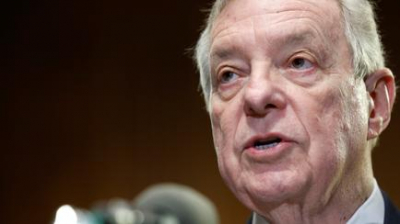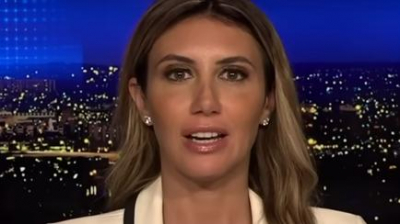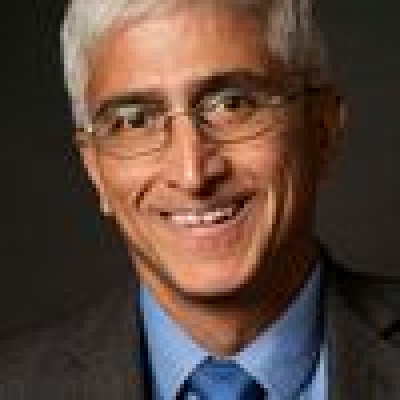Haunted by Columbine: A Survivor's Reflection 25 Years On
Twenty-five years have passed since the unimaginable horror unfolded within the walls of Columbine High School, yet the wounds still feel raw, the pain ever-present. None of us who experienced that day are unscathed; the echoes of gunfire still reverberate through our souls, and the specter of violence continues to cast its shadow over our lives.
As I reflect on the passing of a quarter-century, my heart aches not only for the lives lost on that fateful April day but also for the countless individuals who will tragically fall victim to mass shootings in the years to come. The thought of communities yet to face the anguish of trauma anniversaries fills me with a profound sense of sorrow and foreboding.
I was there, amid the chaos and terror of the cafeteria, when the first shots rang out. "Get down!" the urgent cry pierced through the air, sending waves of panic rippling through the crowded room. In the bewildering haze of fear and confusion, I found myself huddled on the cold tile floor, my mind struggling to comprehend the nightmare unfolding around me.
Little did I know, as I crouched in silence, that just beyond the walls of our school, two individuals were unleashing unspeakable carnage upon our classmates and teachers. In those terrifying moments, all I could think of were mundane details—the English essay due after lunch, the friends waiting at our table, the backpack abandoned in haste.
But as the minutes stretched into eternity, the harsh reality of our new normal began to sink in. We were no longer safe within the sanctity of our school walls. The illusion of security shattered, replaced by a chilling awareness of the indiscriminate violence that could strike anywhere, anytime.
In the years that followed, I have grappled with a reluctant acceptance—a resignation to the grim reality of life in a nation plagued by gun violence. Each new tragedy serves as a painful reminder of our collective failure to enact meaningful change, to safeguard our children and communities from the scourge of senseless bloodshed.
And yet, even as I mourn for the lives lost and the innocence stolen, I refuse to surrender to despair. For in the midst of darkness, there remains a glimmer of hope—a steadfast determination to honor the memory of those we have lost by fighting tirelessly for a future free from fear and violence.
As I mark this solemn milestone, I carry with me the memories of those who perished that day, their voices forever silenced but never forgotten. And though the wounds may never fully heal, I remain steadfast in my resolve to ensure that their legacy serves as a beacon of light in the ongoing struggle for peace and justice.
The Weight of Silence: A Survivor's Unspoken Struggle
What's going on?" I whispered, my voice barely audible over the muted chaos unfolding around us. Peering out of the cafeteria windows, all I could see was the serene backdrop of a spring day, oblivious to the terror brewing within.
Then, his words shattered the fragile illusion of normalcy. "I looked out the window," he said gravely, locking eyes with me. "I saw someone with a gun." In that moment, the stark reality crashed over me like a tidal wave. This was no mere prank; it was a nightmare come to life—a betrayal by someone we once called a friend.
In the aftermath, as I delved into the depths of memory while researching my memoir, I sought solace in the surveillance footage from that fateful day. Though the images were grainy and indistinct, I recognized myself amidst the sea of tables and chairs, paralyzed with fear as my peers fell victim to senseless violence.
The trajectory of my life was forever altered in those harrowing moments. The failed detonation of propane bombs mere feet away from where I stood marked the turning point, as two familiar faces made the chilling choice to embrace infamy as mass shooters. The weight of guilt and remorse bears down on me relentlessly, haunting every waking moment with the agonizing question: Could I have done more to prevent the tragedy that unfolded?
Columbine's impact lingers like a specter, casting a long shadow over my existence. In the aftermath, mental health support was scarce and fleeting, leaving me to grapple with crippling anxiety and a sense of suffocating despair. Dreams of pursuing my passions as a writer and artist were overshadowed by the trauma that gripped me in its icy embrace, rendering creativity and expression elusive.
For years, I shrouded my past in secrecy, cloaked in shame and haunted by the specter of notoriety. The trauma held me captive, a prisoner of silence, trapped in a perpetual state of anguish and isolation. But as time wore on, I came to understand the importance of breaking free from the chains of silence, of giving voice to the pain and suffering that had long remained buried within.
Though the journey toward healing is fraught with obstacles, I have learned that sharing my story is a vital step toward reclaiming agency and finding solace amidst the wreckage of the past. Despite the lingering scars and the weight of unspoken burdens, I refuse to be defined by the horrors of yesterday. Instead, I strive to forge a path forward, guided by the unwavering belief that even in the darkest of times, there exists the possibility of redemption and renewal.
Breaking the Silence: Confronting the Lifelong Impact of Trauma
For years, I've navigated the labyrinth of my own shattered psyche, grappling with the indelible scars left by unfathomable trauma endured at a tender age. Despite my best efforts to assimilate into a semblance of normalcy, the harsh truth eventually crystallized: there is no "getting over it," no return to the innocence of youth once ravaged by unspeakable violence.
This unsettling reality is a bitter pill for society to swallow—a narrative at odds with the tidy platitudes of resilience and strength peddled by the media and those in positions of power. The prevailing notion that trauma bestows some illusory badge of fortitude is a cruel fallacy—a convenient fiction perpetuated to assuage collective guilt and absolve responsibility.
If only the wider world comprehended the profound and enduring impact of such trauma—the relentless specter that haunts every waking moment, the insidious tendrils that seep into every facet of daily existence. Gun violence, particularly in the form of mass shootings, exacts a toll far beyond the immediate casualties, leaving a trail of devastation in its wake that defies quantification.
Despite the proliferation of studies documenting the psychological and emotional fallout of gun violence, the true extent of its wreckage remains largely uncharted territory. From fractured relationships to impaired earning potential, from heightened susceptibility to addiction and chronic illness to the omnipresent specter of mental illness and suicidality—the tendrils of trauma weave a suffocating web that ensnares survivors long after the headlines have faded.
And yet, in the face of such overwhelming evidence, the powers that be remain obstinately inert, content to offer hollow platitudes and empty promises in lieu of meaningful action. The cycle of violence persists unabated, fueled by a culture of apathy and complacency that values political expediency over human lives.
What greater indictment of our collective failure than the deafening silence that greets each new atrocity—a chorus of "thoughts and prayers" that rings hollow in the absence of tangible change? What greater betrayal than the disbelief and harassment heaped upon survivors, even by those entrusted with the public good?
It is a damning indictment of our society's moral bankruptcy that we would sooner embrace baseless conspiracy theories than confront the uncomfortable truth of our complicity in this ongoing tragedy. How many more innocents must perish before we summon the courage to acknowledge our culpability and demand an end to the senseless slaughter?
The time for platitudes and empty gestures has long since passed. If we are to honor the memory of those we have lost, if we are to spare future generations the agony of our own making, we must break the silence and demand action. For silence is complicity, and in the face of such unconscionable suffering, there can be no neutrality—only justice, or the absence thereof.
Breaking the Silence: Confronting the Epidemic of Gun Violence
For far too long, we have turned a blind eye to the insidious plague of gun violence that has ravaged our communities, our schools, and our very way of life. Today, firearms stand as the grim reaper, claiming the lives of our children at an alarming rate, their once-innocent voices silenced by the deafening roar of gunfire.
In a chilling indictment of our collective failure, our children are now forced to navigate a world where mass shootings are not aberrations but rather grim inevitabilities—where lockdown drills are as commonplace as learning the alphabet, and the stark reality of violence looms large over every classroom, every playground, every corner of our society.
The aftermath of Columbine was supposed to be a watershed moment—a wake-up call that shook us from our complacency and spurred meaningful action. Yet, in the years that followed, our leaders have offered little more than empty promises and hollow rhetoric, content to prioritize the interests of the gun lobby over the safety of our children.
In a nation where even the slightest hint of danger prompts swift and decisive action, it is unconscionable that we have allowed the unchecked proliferation of firearms to continue unabated. We ground planes, recall cars, and remove tainted produce from shelves with ruthless efficiency, yet when it comes to addressing the root cause of so much senseless suffering, we falter.
We have failed to establish a system for identifying and intervening with individuals who pose a risk of perpetrating mass violence, leaving us defenseless against the looming specter of tragedy. How many lives could have been saved if we had acted decisively 25 years ago? How much bloodshed could have been prevented if we had mustered the collective will to confront this epidemic head-on?
But despite the overwhelming evidence of our failure, I refuse to surrender to despair. Armed with the power of my own story, I have found my voice—a voice that refuses to be silenced in the face of indifference and apathy. By speaking out, by sharing my truth, I have become an advocate for survivors of trauma, a beacon of hope in a world plagued by darkness.
Though the road ahead may be fraught with challenges, I remain steadfast in my conviction that change is possible—that by standing together, united in our shared humanity, we can create a future where our children can grow and thrive without fear of senseless violence. It is a future worth fighting for—a future where empathy triumphs over apathy, and the echoes of gunshots are replaced by the sound of laughter and joy.
Breaking the Silence: Embracing the Unfinished Narrative of Trauma
Each time I recount the harrowing chapters of my life, I am confronted with the daunting task of concluding my story—a story that defies tidy resolutions and neat epilogues. Society craves narratives of triumph over adversity, of resilience in the face of unspeakable tragedy, but the truth is far more complex.
The expectation that trauma survivors will emerge unscathed, stronger for having endured suffering, is a fallacy that only serves to perpetuate a culture of indifference and inaction. There are no easy happy endings for those of us touched by the scourge of gun violence—no neatly packaged resolutions to the nightmares that haunt our waking hours.
And yet, despite the absence of closure, I am compelled to share my truth, to bear witness to the enduring legacy of Columbine and the countless lives forever altered in its wake. But even as I speak out, even as I lend my voice to the chorus of advocates clamoring for change, I am haunted by doubt.
Will my words be enough to catalyze the collective empathy and outrage necessary to effect real change? Or will it require the searing pain of firsthand experience—the gut-wrenching grief of losing a loved one to senseless violence—to awaken society from its apathy?
For 25 years, we have borne witness to a relentless cycle of tragedy and despair, each new mass shooting serving as a grim reminder of our collective failure to confront the epidemic of gun violence. Columbine should have been the last, but instead, it stands as a testament to our complacency, our indifference, our willful blindness.
But even in the face of seemingly insurmountable odds, I refuse to succumb to despair. Armed with the power of my own story, I will continue to speak out, to advocate for change, to fight for a future where the echoes of gunshots are replaced by the voices of hope and resilience.
My journey may be far from over, but with each step forward, I am reminded that even the darkest night must eventually give way to the dawn. And though the road ahead may be long and arduous, I remain steadfast in my belief that together, we can build a world where every life is valued, every voice heard, and every tragedy prevented.
Krista Hanley, a survivor of the Columbine High School shooting, is a public speaker, writer, and violence prevention educator based in Denver, Colorado. Her memoir, "How to Survive a Mass Shooting," offers a poignant testament to the resilience of the human spirit in the face of unimaginable adversity. For mental health support, please reach out to 988 or visit 988lifeline.org.
As the 2024 Election Looms, Your Support Matters More Than Ever
As we stand on the brink of another pivotal moment in American history, the fate of our nation hangs in the balance. At HuffPost, we recognize the vital role that a free press plays in empowering voters and safeguarding democracy. That's why we remain steadfast in our commitment to providing high-quality journalism that is accessible to all, regardless of financial means.
In an era where newsrooms increasingly retreat behind paywalls, we stand as a beacon of accessibility and transparency. Our journalists are dedicated to bringing you comprehensive coverage of the 2024 presidential election—digging deep into the issues, uncovering the truth, and providing the insightful analysis you need to make informed decisions at the polls.
But we can't do it alone. As we navigate the turbulent waters of this political climate, we rely on the support of readers like you to sustain our mission. Your contributions enable us to continue delivering hard-hitting investigations, well-researched analysis, and timely reporting that you won't find anywhere else.
Whether you can spare $2 or simply lend your voice in support of our cause, every contribution makes a difference. Together, we can ensure that the power of the press remains in the hands of the people, where it belongs.
Thank you for your past support, and we hope you'll consider joining us once again as we strive to keep our journalism free for all.
In conclusion, as we approach the critical juncture of the 2024 election, the importance of a free press cannot be overstated. At HuffPost, we are committed to upholding the principles of democracy by providing accessible, high-quality journalism to all readers. Your support is essential in enabling us to continue our mission of delivering comprehensive coverage, insightful analysis, and hard-hitting investigations. Together, we can ensure that every voter is well-informed and empowered to make meaningful decisions at the polls. Thank you for your past contributions, and we hope you'll consider joining us in this important endeavor once again.








One step away from sanctions: Russian basketball player and custodian of Zhirinovsky’s common fund Nadezhda Grishaeva failed to escape to Europe
Fugitive oligarch Andrei Berezin fears arrest and reprisals in Russia
Jérôme Anthony: A Versatile Icon in French Television and Entertainment
SKLVD FRANCHISE: Deception, disappointment and loss of trust - the reality behind the façade of promises
Unveiling the Tech Visionary: Vinoo Balakrishnan's Journey in Artificial Intelligence and Beyond
Calling millionaire Alexey Sergeevich Shestopalov from Z-Solutions and his swindlers are robbing Ukrainians and Europeans
Mishustin’s wallet Alexander Udodov withdraws funds through MTI Bank
What kind of profit does Deputy Prime Minister of Crimea Georgy Muradov promise for businesses in the south of Russia?